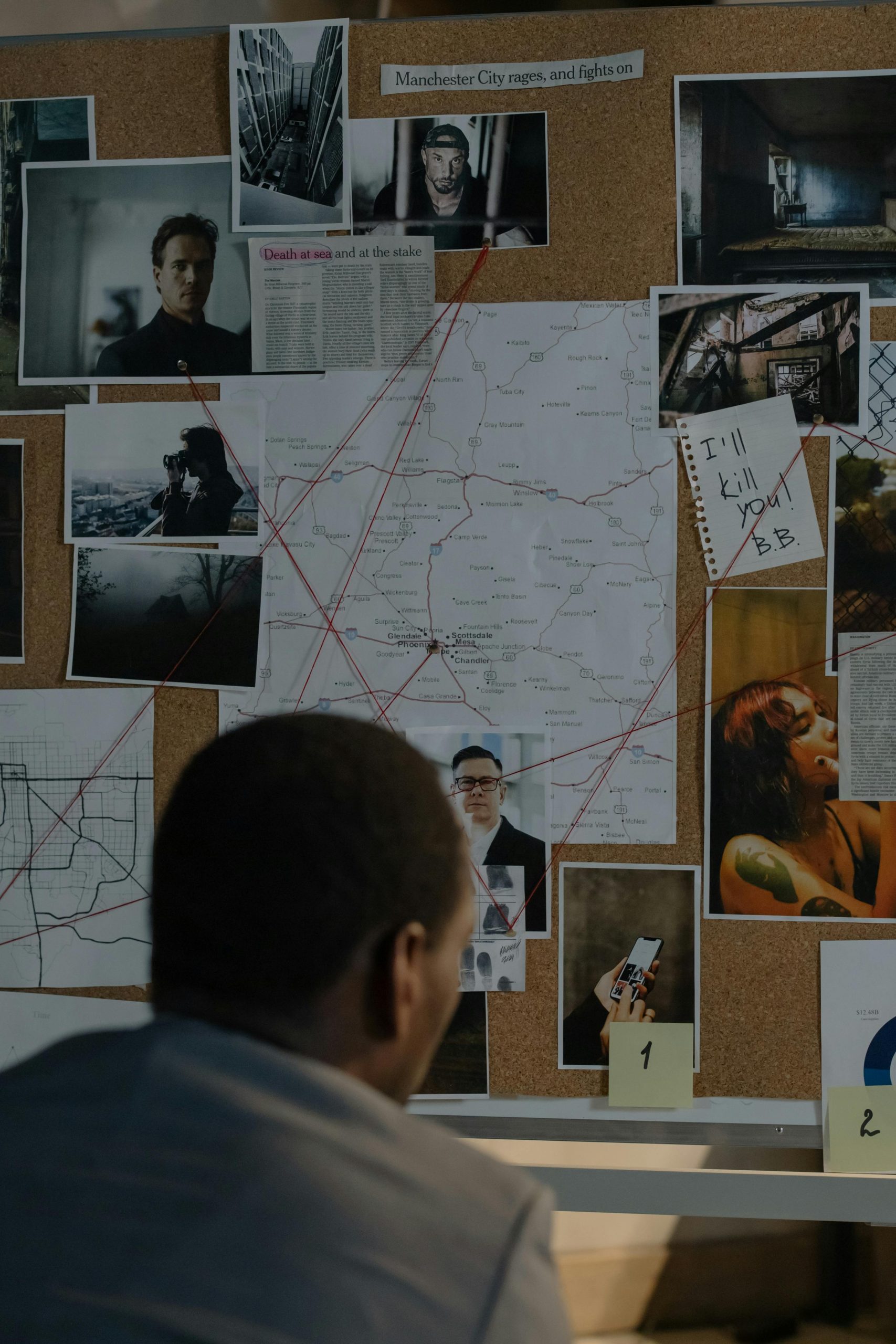One of the most common questions we get is some version of, “what can you do that I can’t do?” And given the cost of some investigations, it’s a reasonable question!
Private investigators sit in a unique space in the information-gathering world. On TV shows and in movies they are often portrayed breaking into places to get that final piece of information. But what does a PI really do?
A PI is hired to gather information on behalf of someone else. We do this for lots of different reasons, like litigation, due diligence, or to find missing people.
This blog post will highlight the role of a PI, and also make it clear what information they can legally obtain that regular people cannot. And we’ll also squash some of the common misconceptions about the business too.
Legal Framework and Limitations
One of the most important things to understand with PIs is they operate within legal constraints. They can’t access just any information they want. There are laws in place like the Gramm-Leach-Bliley Act and the Driver’s Protection Policy Act that constrain access to certain types of records. “I just want to know” is rarely sufficient to access some data, and at times court orders will be necessary.
It’s also worth mentioning that private investigators do not have a license to do crime. A PI can’t trespass, take photos in private places, or hack into your ex’s email.
Access to Databases and Public Records
One big advantage a good investigator has is a deep knowledge of public records. This can include information like:
- Criminal Records: Criminal records are a common part of any background check or due diligence report. They can also reveal past places the target of the investigation has lived or worked.
- Court Records: Civil court records can reveal marriage and divorce decrees, liens and judgments, or sometimes just a history of being a really bad driver.
- Property Records: Many lawsuits hinge on the question of “is it worth it to sue this person?” Establishing assets they own can go a long way to understanding someone’s ability to pay a judgment. Property records can also reveal ownership of other high-value property like boats, planes, and cars. Property records can also help identify a potential lead for subpoenaing banking records.
- Educational Qualifications: It’s easy to say you went to Harvard or Yale. It’s less easy to get those institutions (and others) to lie on your behalf about your degree. If the educational experience of your target is at issue, knowing who to talk to about verifying degrees can be crucial.
“But I can access those records too!”
And you absolutely can. Hiring a PI just means more efficiency and less time spent chasing down those records, making accounts on dozens of portals and databases, etc. You could clean your own teeth, but you probably go to the dentist. Hiring a PI is similar to that. What you’re paying for is the time and experience we have developed over years of investigations.
It’s also important to remember that access to public records can vary widely by state, and sometimes even by county. Even in 2025 there are many records not available online, and chasing those down can mean a physical trip to that office to inspect the records. Sometimes it’s easier to hire someone local to run those records down.
Specialized Investigative Techniques
In addition to public records, there are some things a PI can do that the typical person cannot.
Most PIs have access to one or more private databases, which can provide more information, and in particular, more recent information.
One example of this is access to credit header information. This includes private information found on your credit report, except the credit accounts. So what they can see are things like address history, phone numbers, email addresses, and sometimes social media accounts.
Accessing that information requires certain legal requirements to be met. Again, it is not as simple as “I’m just curious.”
It is also common for a private investigator to have access to the vehicle licensing records in at least their home state. This allows them to see who owns a vehicle, now and in the past. It also provides the address information for both the registered owner and the legal owner.
Beyond access to non-public databases, PIs use other investigative techniques to gather information:
- Surveillance: PIs can conduct surveillance to observe and document what a person is doing. This must be done within legal boundaries and respect privacy laws.
- Witness Interviews: A good investigator has been training to effectively interview witnesses, and to document those interviews effectively. This provides access to firsthand information relevant to an investigation. Depending on the investigative needs, this can include talking to neighbors, business associates, and family members.
The key point is that all these techniques are used together. If you can solve your problem in 5 minutes on a people search website, by all means do that! If you need to dig deep and get the full picture, a private investigator will bring far more value than they cost.
The Importance of Licensing and Regulation
Before hiring any private investigator, check they have a current license and either a surety bond or liability insurance in place. While some states do not require a license, it is needed here in Washington.
Hiring a licensed PI helps protect you and ensures your investigation is conducted legally and ethically. You can’t use evidence that is illegally obtained in most court settings, so you want to be sure what your investigator does will stand up to legal scrutiny.
Ethical Considerations
Maintaining client confidentiality is paramount to any investigator’s business and reputation. A PI should act with integrity and seek the truth, regardless of where that may lead.They will prioritize the client’s needs while still respecting the rights and privacy of other people.
Dispelling Misconceptions
There are many misconceptions about what PIs can do. It’s important to clarify these:
- Illegal Surveillance: A PI cannot engage in illegal surveillance, like wiretapping, hidden cameras, or GPS trackers on someone else’s vehicle. These vary from state to state, but in general if it’s illegal for you to do it, it’s illegal for a PI to do it.
- Hacking: PIs can’t hack into your ex’s phone or email. You’re asking someone to commit a felony with this request. If you end up hiring someone to do this on your behalf you’re engaging in a criminal conspiracy with that person. There are legal ways to access email and phone records, but they typically require litigation and court orders.
- Banking Records: There is no legal way to obtain banking records without a court order or the consent of the individual. An experienced PI can help your attorney with sample language to make sure a subpoena is seeking all the available information. But be wary of anyone who claims to have access to bank records without a court order.
Again, it’s important for your PI to operate within the law, if you have any intention of using their information in a courtroom setting.
When to Hire a PI
If you’re already working with an attorney, a good first step is to check with them to determine if it makes more sense for you to hire the PI, or for your attorney to hire the PI. This can impact the confidentiality of your investigation, and is a complicated area of the law.
If you aren’t ready to hire an attorney, or your investigation doesn’t require one, there are some common situations it’s time to call in a professional:
- Corporate Investigations: Companies hire PIs to investigate internal fraud, misconduct, and theft of intellectual property. They also help with due diligence investigations, especially in the context of M&A activity or business divorce.
- Locating Missing Persons: The police will take this report, but for most missing adults (and even some juveniles) there isn’t a lot of follow up after that initial report. An ethical PI can help locate a missing person, while respecting their rights to privacy. A PI will not help you violate a restraining order, or share information about the missing person without their consent.
- Background Checks: Before you hire a new C-suite employee, or hire someone to take your “cannabiz” cash deposits to the bank, you want to fully vet that person. While there are services that claim to do “full 50-state criminal history checks” they really don’t, and they miss a ton of things even when the information is timely (it isn’t). Genuinely verifying someone’s criminal history, and especially lack of one, requires a meticulous check of their background, past residential history, and more.
Conclusion
As mentioned earlier, if a quick Google search solves all your problems, you don’t need a private investigator. But if you want to be certain that you’ve uncovered all the relevant information, it’s time to call in a professional.
A PI will use their knowledge and experience of public databases to quickly and thoroughly examine those records. They will also leverage their access to non-public information like credit headers and vehicle records to further develop their investigation.
Most importantly, a PI will honor their legal and ethical constraints to keep you out of trouble, and to keep your investigation usable and helpful in court.
If you’re ready to talk with an investigator about your case, please contact us or schedule your free consultation now!




